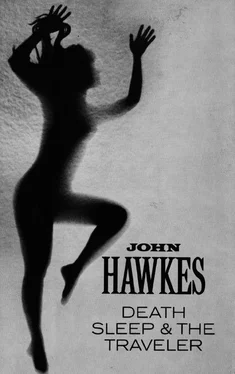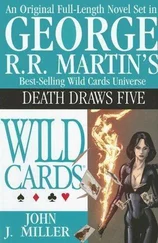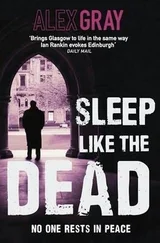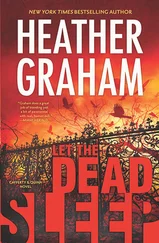So, I told myself, our separation was no longer impending but now was upon me or even ahead of me, like a road that changes direction until suddenly it doubles back upon itself. Yes, our separation was now a fact. It was all in the silence and muted light. And just as I had expected I felt nothing, I anticipated no approaching pain, but was aware only of the perception of the event rather than of the event itself. I was aware of the silence. I was aware of the faded light.
It was possible that she had departed without farewells. Perhaps she had decided to spare me a final admonition, a final smile. Perhaps she had not wanted me watching as she tied the sash of her fur coat and drew on her driving gloves. Perhaps I had slumped into the folds of my newspaper, slipping away, dreaming of the goose that long ago had struck repeatedly at my bare childish calf, and so dozed through Ursula’s disappearance from the long life of our marriage. Or perhaps she was even now taking her place in the front seat of her car alone or beside a new companion, and even now was preparing to play out all my speculations, all the texture of this fading day, in the unmistakable sound of a car engine.
I turned, I saw Peter’s meerschaum pipe in an ash tray where Ursula had decided to leave it. In passing I thought the pipe was covered with a skin of dust, as if it were lying in Peter’s empty house instead of ours, and in that moment and even as I was walking down the hallway toward the kitchen, I remembered what had occurred to me at the time of his death: that grief is only another form of derangement and that my innocent childhood had been filled with it.
I saw the two cold Dutch ovens, I heard my footsteps on the tiles, I saw the snow beyond the kitchen window, I saw the bright knives in their rack. Carefully, with eyebrows raised, with hands steady, I poured the schnapps into the little glass and held it up to the light. I felt that my face was expressionless, I knew that my actions were deliberate. I poured and then drank the schnapps. I leaned my cheek against the white tiles, each of which bore its glazed blue abstraction of an ancient Norse ship on a sea that might have been drawn by a child. I drank and waited for the sight and perhaps sound of Ursula’s car. But there was nothing. The tiles grew warm beneath my cheek.
I put down my glass. I saw the glass sitting alone on the flat expanse of thick white tiles, I saw how the light revealed the invisible film of liquor that still coated the inside of the glass and that smelled so beautifully like yellow kerosene.
I turned, I waited. Then carefully I raised my fingers to the heavy mask of flesh that was my face. But then 1 lowered my hands, trembled, detected the first far-off indications of a sound which, in the next moment, defined itself as the sound of water in motion, running, increasing in volume somewhere on the floor above. I exhaled. I wiped my spectacles. I refilled the glass with schnapps. Because now I knew that the sound I heard was that of Ursula in the shower, and I distinctly heard the muffled torrents of steaming water that were already turning her wet skin pink and filling the shower stall with clouds of steam rich in the scent of Ursula’s lilac soap. I tasted the schnapps. The little glass was wet in my fingers. Now I knew exactly what was lying in wait for me somewhere ahead on the cold calendar.

“I care very little about your ‘victim,’ Allert. She was much too young to engage my serious attention. But I do care about what you did. And if they acquitted you unjustly and only because you happened to have at your side a handsome wife, I can say nothing but that your next trial will be different. Very different.” By the time she had completed her last sentence I was through the doorway and feeling my way up the darkened stairs.

‘‘Go to her, Peter,” I said in the dark silence in which the two of us were lounging, “go to her and fill an old friend with enjoyment.”
“That is another poor joke,” he said, rising like a familiar and benevolent specter in the light of the fire, “but a good idea.”
“Ja, ja, ja,” I said to myself as I heard him fumbling his way toward the stairs.

“Allert,” she said, thrusting her soft face close to mine, “have you any idea of what you are doing? I suppose you do not. But you are destroying my romance with Peter. How dare you destroy the sweetness and secrecy of my romance with Peter? How can you be so vulgar as to read my mail?”
“I do not deserve so much condemnation. It was only a love letter. And the envelope was already open.”
“And now Peter’s beautiful phrases about love and friendship are lodged in your head as well as mine.”
“I shall forget them all too soon, Ursula. All too soon.”
But she was not appeased, and the clear snow continued to pile high on Peter’s car.

“Allert,” Peter was saying, “has it ever occurred to you that perhaps you were once a patient in Acres Wild? Before my time, before we were friends? Perhaps in your distant and flaming youth you were once restrained in Acres Wild. What do you say, my friend, shall I look up the records?”
In answer I said I found it difficult to recall my youth. I was quite capable of recalling occasional fragments of my childhood, but of my youth it appeared that nothing much survived. But it was just as well, I said to Peter, and requested him to undertake no bookkeeper’s search for what might well prove to be the notations of my obliterated violence. Nonetheless, when we next met, Peter asserted that despite my prohibition he had gone ahead and attempted to search out documentation of my unpredictable youth. But if I had ever been a patient at Acres Wild, he said, the records of that fact had been destroyed — conveniently destroyed.
“But, Peter,” I said, and laughed, “Acres Wild is not the only psychiatric institution in this small country of ours.”
For answer he simply trusted his gloved hands on the wheel and turned his eyes from the snowy road and looked for a long warm moment into my own clear candid eyes and smiled his knowing smile.
“Why don’t you get something on the radio?” he said. “Some nice dance music, perhaps.”
Obviously Peter was disappointed that his search had proved futile.

The road that climbed the hill to the zoo was lined at every turn with bougainvillea, with succulents, with small religious way stations pink or blue, with palm trees that cast their rubbery shadows on horse, driver, carriage, and we three silent passengers squeezed together on the narrow rear seat of the black carriage. I smelled the comforting drowsy smell of the old horse, I felt Ariane’s small perspiring thigh against my own thigh. I was aware of the sound of the horse’s hooves and the turning wheels, of the erotic plant life that bedecked our ascent and of the white tiles and silver bells of the little uncorrupted city below. But most of all I saw the white ship anchored and looming down there like some nautical monstrosity in a painted bay. The long line of the hull, the tilt of the smokestacks, the empty decks, the sweep of dazzling whiteness, here and there the flash of some microscopic piece of machinery — it was a shocking unconvincing sight that justified the discomfort of the disinterested traveler in his white linen suit. I could not decide which was less real, the ship or the plodding horse. And yet with every turn of the iron-rimmed wheels and every slow lurch of the carriage, my only urge was to return to the desolation of the ship. So I leaned forward, stared away to the east, shaded my eyes, did my best to keep our ship in sight.
Читать дальше













